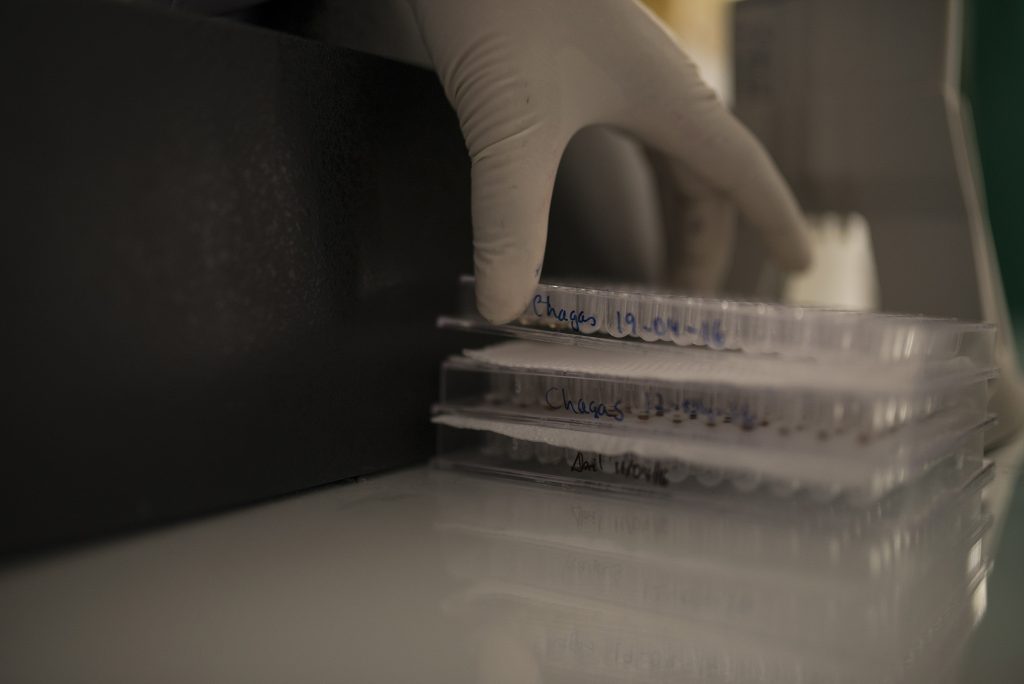This year, in collaboration with researchers from the Malaria Programme, we made significant progress addressing one of the most urgent needs in Chagas disease: finding reliable biomarkers to evaluate whether a patient is responding to treatment. By analysing extracellular vesicles isolated from a patient with chronic disease, we found a series of proteins that decreased or disappeared after treatment. These proteins, which circulate in blood, represent potential markers of therapeutic response (1).

Regarding strongyloidiasis, caused by an intestinal worm, we showed that treating all immunosuppressed migrants arriving to the European Union from endemic areas, without screening or testing, would be the most cost-effective strategy against this neglected tropical disease (2). Our research on leishmaniasis, a parasitic disease transmitted by sandflies, showed that a vaccine against canine leishmaniasis was not effective in preventing active L. infantum infection in dogs from endemic areas (3).
-
Cortes-Serra N et al. Emerging Infectious Diseases. 2020
-
Wikman-Jorgensen PE et al. BMJ Global Health. 2020
-
Velez R et al. Acta Trop. 2020













